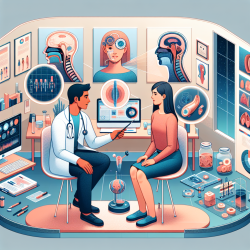Introduction
In the wake of the COVID-19 pandemic, various sectors, including education and healthcare, have had to adapt rapidly to ensure continuity and quality of services. The research article "From multiple streams to a torrent: A case study of food policymaking and innovations in New York during the COVID-19 emergency" provides a comprehensive analysis of how policy innovations can emerge during crises. While the focus of the article is on food policy, the insights gained can be applied to improve outcomes in other areas, such as speech-language pathology, particularly in the context of online therapy services provided by companies like TinyEYE.
Understanding Policy Innovations
The study utilizes the multiple streams framework and the multilevel perspective on sociotechnical transitions to analyze over 300 food policies implemented in New York during the pandemic. These frameworks highlight how crises can open policy windows, allowing for the enactment of novel policies that may not have been feasible under normal circumstances. This concept is crucial for speech-language pathologists (SLPs) as it underscores the potential for innovative practices and policies to emerge in response to challenges, thereby improving service delivery and outcomes for children.
Applying Insights to Speech-Language Pathology
SLPs can draw several parallels from the research findings:
- Policy Windows: Just as the pandemic created opportunities for new food policies, it has also opened avenues for innovative practices in speech-language pathology. Online therapy platforms like TinyEYE can leverage these opportunities to implement data-driven strategies that enhance therapy outcomes.
- Data-Driven Decisions: The emphasis on data in policymaking during the pandemic highlights the importance of using evidence-based practices in speech-language therapy. SLPs should focus on collecting and analyzing data to tailor interventions that meet the specific needs of each child.
- Collaboration and Coordination: The research underscores the importance of cross-sector collaboration in policy implementation. SLPs can benefit from collaborating with educators, parents, and other healthcare professionals to ensure a holistic approach to therapy.
Encouraging Further Research
While the study provides valuable insights, it also highlights the need for ongoing research to understand the long-term impact of policy innovations. SLPs and researchers are encouraged to explore how the lessons learned from the pandemic can be applied to improve speech-language therapy practices. This includes examining the effectiveness of online therapy platforms and identifying best practices for remote service delivery.
Conclusion
The COVID-19 pandemic has underscored the need for flexibility and innovation in service delivery across various sectors. By applying the insights from the research on food policy innovations, SLPs can enhance their practice and improve outcomes for children. Embracing data-driven decisions and fostering collaboration will be key to navigating the challenges and opportunities that lie ahead.
To read the original research paper, please follow this link: From multiple streams to a torrent: A case study of food policymaking and innovations in New York during the COVID-19 emergency.










